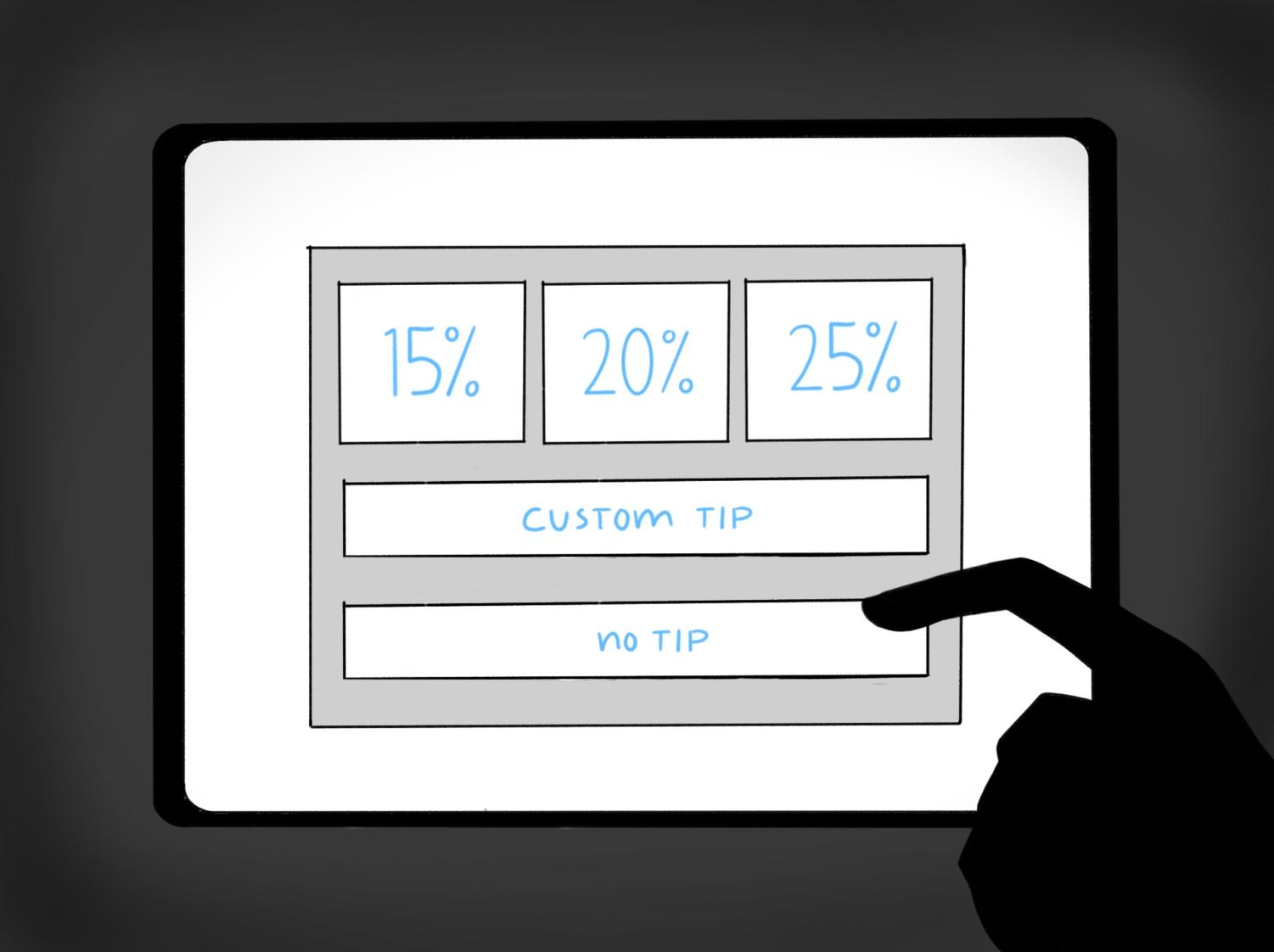Tipping: a custom gone too far
March 6, 2023
One controversial issue regarding American culture is the societal pressure to tip service workers and to tip them well. When foreigners visit the states, they often experience this culture shock through either automatic gratuities or dirty looks from waiters as they hand in their check. This begs the question, should tipping be a cultural practice?
The answer is complicated. Recently there has been an increase in workers expecting tips. When walking into a small cafe or an ice cream shop, not only do customers have to pay $4-$6 for a regular serving, but the cashier who takes their order will often flip their screen around asking for a tip.
Many also expect a 20 percent tip and would find anything lower to be disrespectful. So this means a quick outing to get a coffee, customers may have to pay upwards of $10 depending on the shop’s pricing.
This is unsustainable because rent, groceries, utilities, and other bills have also increased due to nationwide inflation. It is unreasonable to expect customers to tip every time they purchase food outside of a grocery store when they have other bills to tend to.
This is not to say that servers don’t deserve tips. They do. Not only is their hourly rate less than minimum wage, but they genuinely serve their customers. They take their orders, but they also spend their night running from the kitchen to the table to provide high quality customer service. This interaction between servers and customers can last hours until the customers leave.
This is not the case for cashiers who simply take orders and don’t spend prolonged amounts of time serving a single customer. This type of service is mostly seen in self-serve or fast-food based restaurants. These workers get hourly rates above minimum wage which means they do not depend on the tips they get from customers. For this reason, there is no logical reasoning to society’s expectations of tipping these service workers since they simply do not operate at the same level which traditional restaurant servers do.
For these longer, more demanding services, tipping should be required. Professional services are optional and are used mostly for personal enjoyment. Essentially, this means that these customers understand that they are choosing to spend money on a professional service therefore should expect to tip as well.
This is not the case however for those utilizing accessible and mostly cheap trips to fast food restaurants or other service based businesses which advertise themselves to be quick with service. These businesses are more of a necessity for survival since many people cannot afford groceries or uncooked ingredients if they do not own the necessary equipment to make a meal with them.
This could mean a hotdog stand on the sidewalk is likely a main food source for many impoverished people across the country. If they are expected to tip, or even worse, have automatic gratuity placed on their bill, their ability to access food will be hindered.
Overall, tipping should only be expected or required on services which are considered nonessential. The increase of societal pressure on people to tip can leave people especially short on money in an economy which is already experiencing high rates of inflation.
